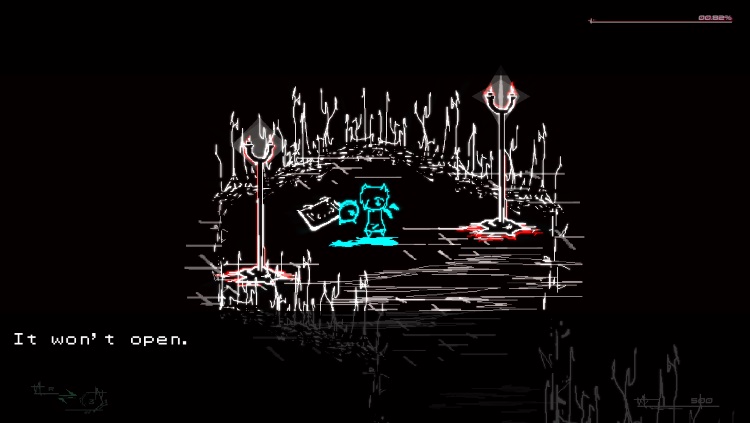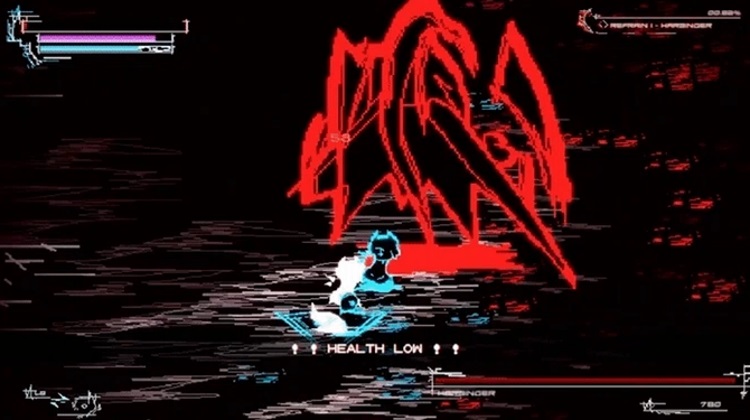A game’s atmosphere is a big part of selling players on the story. A horror game set in a bright, beautiful location probably won’t go far. So when Developer, melessthanthree decided to set their game in a bewildering world of nightmares, standard pixel art just wasn’t going to cut it. Thus the hand-drawn sketch style of LUCAH was born.
The Kickstarter campaign is just over halfway towards its $20,000 funding goal with the game already in an Alpha state. The devs have already locked down the game’s core mechanics and aesthetic. The Kickstarter funding will allow the team to complete and polish the game’s final chapters and pay publishing fees. Players can already download a demo build which covers the first three chapters of the story.
Developer, Colin Horgan was influenced by his own struggles with identity and mental illness to create LUCAH. This is artfully portrayed by the disorienting splotches of landscape that surround the protagonist. Players can never be sure what is lurking just around the next bend, or even which items are dangerous or benign. It’s a subtle mechanic that keeps the tension brewing just beneath the surface of gameplay.
The story follows our protagonist, LUCAH. As one of the Marked, LUCAH is hunted and feared for possessing magical and potentially destructive powers. The game begins with players waking in a dark and hellish landscape where monsters stalk their every move. Here, players must fight to survive and find a way to escape the impending corruption that threatens to consume them.
While the art style might not entice everyone the combat more than makes up for any perceived inconvenience. Players are able to mix a rich variety of both melee and projectile based attacks to fit their play style. LUCAH also has access to a host of magical abilities allowing them to command familiars and unleash elemental attacks. It gives combat a more nuanced approach than the typical hack and slash and combined with a rewind ability, more ways to gain an advantage over the creatures in the darkness.
Lost In The Darkness
Of course, the combat can sometimes get confusing since the art provides only enough direction to get your bearings. Until you get more comfortable navigating around the void it’s easy to trap yourself in a corner while the nightmares have their way with you. Fortunately, at least in the demo, save spots felt balanced and generous so you’re never backtracking too far after a mishap.
Overall, LUCAH utilizes a unique style to convey its cryptic narrative. It’s an interesting approach, as players must fill in the blanks themselves to get the whole experience, both in terms of story and visuals. This campaign serves as a reminder that games can be a deep storytelling medium when you force yourself to look beneath the surface.





